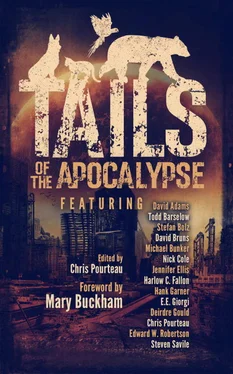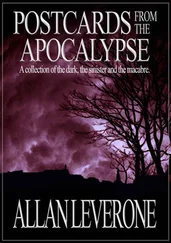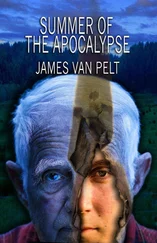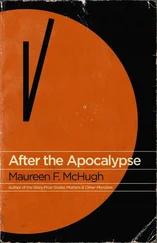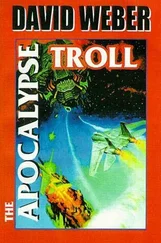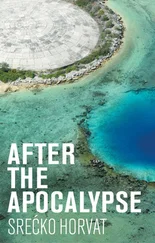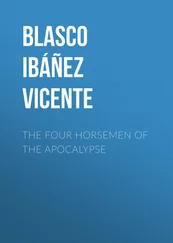No chick has ever survived falling from its nest.
For sure, my next encounter with the condors was going to be as dead flesh.
* * *
The first thing I saw when I opened my eyes was the boy. A human boy. I might as well have died. Condors ate humans, birds, and rodents alike, but only after they’d been killed by something else. Humans weren’t so considerate. They killed everything else in order to eat.
The boy wasn’t alone. There was a man with him. He took me from the boy’s hands and examined me. I cringed as he handled my broken wings and legs. I thought of Mother, wondered if she ever made it back to the nest.
And then I thought of the condors. My dream of one day flying with them was crushed. My beak hung open and silent.
The boy and the man argued, but I couldn’t understand a single word they said. They put me in a bag. The pain was overwhelming. I closed my eyes and passed out.
* * *
I woke up in a warm place. A fire was crackling nearby, and the scent of burning wood filled my palate. To my surprise, the pain was gone. I wiggled the tip of one wing, then the other. Still no pain.
Muffled sounds came from close by. Steps, voices, the clinking of metal. And more scents. Lots and lots of scents—like a new rainbow of smells entering my beak, olfactory hues I didn’t know at the time. I later learned to recognize them: fish stew, sweet potatoes, candle wax, soap.
The smells of humans.
I’d never inhaled so many scents before.
And yet here I was, snuggled in a wool blanket, alive despite myself, pain free, and with a sense of smell so strong it almost blinded me.
I lifted my head. The fire was burning a few feet away. The flames cast dancing shadows on the white walls. One of the humans was sitting on the floor a few feet away from me. No, it wasn’t the boy who’d rescued me. It was a girl.
A bit younger than the boy, she stared at me with large, wondering eyes. I startled and tried to hop away from her. I didn’t get too far, my talons skidding on the hard surface of a table.
I turned and saw the boy. “He’s going to learn how to fly,” he said.
I gasped. Suddenly, I realized, my sense of smell wasn’t the only thing that had improved. I could understand what they were saying! I was so shocked I slipped on the table and fell to the ground. The girl crawled across the floor and picked me up.
“Did you give him a name?” she asked, stroking my back.
The boy sat on the floor next to her and ruffled the down on my neck. “Kael,” he said. “I’m going to train him to be a hunter. Dad implanted a smelling chip in his brain. You’ll see.”
The girl tilted her head and made a sad face. “I don’t want him to be a hunter. I want him to be a friend.”
The boy scoffed. He took me from the girl’s hands, stood up, and placed me back on the table on top of the blanket I’d awakened in. “Leave him alone. He needs to rest. It’ll take a few weeks before his broken wings heal completely and the implanted chip is fully functional.”
I didn’t know what he meant. I realized I could understand the words but not the meaning behind them. The boy walked out of the room. I craned my head and looked over the edge of the table. The girl was still there, sitting on the floor. She looked up at me and our eyes met. There was something broken in her eyes, something we shared beyond our different genes, different species, different languages.
It took me a few days to figure it out. The girl couldn’t walk. Just like I couldn’t fly.
To be honest, these humans that had rescued me, they all had something weird about them. The mother was missing an arm and used a gadget with a hook in place of a hand to grab things. The father had chips and wires poking out of his ears.
The boy came and fed me in the middle of the night, when I was most alert. By then I’d been moved from the table to the kitchen window, where I spent most of my time both day and night. The boy would sit on the windowsill and look outside, and after a while I realized he could see in the dark, just like me. So that was his weirdness. His eyes were like my nose.
I tried to stay detached, but as time passed, I confess I grew accustomed to these moments with the boy. The house—not really a house, more like three or four rooms the family shared in a huge building full of humans—was silent at night. The windows were always open, and you could hear crickets chirping outside and water rushing in the river.
The boy always brought morsels of food when he came to see me. I still wonder at how strongly I could smell the meals he’d give me. The insects and rats Mother would bring to the nest never smelled so tasty. Human food instead made my stomach growl in anticipation. Now I’ve pretty much gotten used to it. My sense of smell is no longer just a part of me. It’s who I am.
The boy would talk to me and tell me how my wings were going to heal, how he was going to teach me to fly. He’d sweep a hand across the sky, point to the moon, and say, “Imagine when you’ll be out there, riding the winds.”
Yes, I looked forward to those moments when darkness fell and the boy would come to feed me. Which, of course, was a terrible thing. Me, a brown falcon still dreaming of flying with the condors one day—how could I afford to become friends with humans? The fact that they’d rescued me didn’t matter. I had to leave as soon as possible. I had to return to the nest, to prove Mother wrong. “Look, Mother,” I would tell her. “I fell from the nest and yet I survived.” And I had to find the condors again. Soar in the skies with them.
So I waited. Waited until my broken bones healed and my vaned feathers grew in. Waited until the boy would teach me how to fly so I could realize my dreams and return to where I belonged.
Except I wasn’t the same anymore. They’d changed me. The smells I could see as patterns on the wind, the fact that I could now understand them. I’d sit on the windowsill during the day and listen as they talked among themselves.
I soon learned why the boy could see in the dark. His eyes weren’t made of flesh and blood. They were made of chips and wires, just like the mother’s arm and the father’s ears. The girl I still hadn’t figured out.
From what I overheard, she used to be able to walk but got sick and spent many days in bed. When the fever had passed, she could no longer walk. The mother and father were very upset about this. But the girl—she didn’t seem to mind. She’d crawl across the floor to the window, where she’d sit and watch me.
“Tell me what you see,” she’d say. “Tell me what you see when you look out the window.”
I did tell her. But only in my head, because my beak could not create all the sounds humans make with their soft beaks— lips they call them. I’d tell her about the river, how I was born hearing it rush beyond the cliffs. I told her about the waterfalls, though I couldn’t see them from the window; but I used to see them from the crevice where Mother had built our nest, the sprays of water rising over the forest. And I told the girl about the condors, too—about how I loved to watch them soar high in the sky, the sun glinting off their black wings. I don’t know if the girl could hear my thoughts the way I could understand her words. But she’d sit there with me under the windowsill, and stare out the window as I relived all those memories.
I was no longer a chick by then. I’d become a fledgling, my body covered in white and brown feathers. Mother had done her best to feed me, but as a single parent she could never leave the nest for too long, so she rarely brought back much to eat. As much as I hated that the humans had implanted stuff in my head, I confess that I finally felt strong and healthy in a way I’d never felt before. When the breeze blew in from the north, I’d spread my wings and catch the wind in my feathers. The boy would come yelling, “He’s going to do it! Kael’s going to fly!”
Читать дальше
